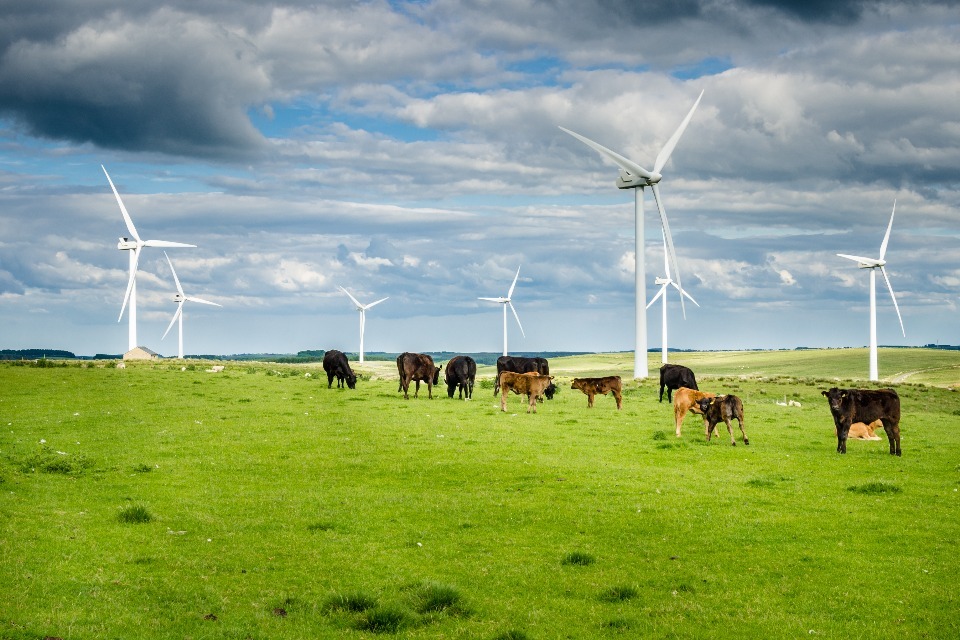
UK BSE Risk Downgraded, Boosts Farming Sector
World Organisation for Animal Health (WOAH) downgrades UK’s BSE risk rating to negligible
The UK’s risk rating status for Bovine Spongiform Encephalopathy (BSE) has been downgraded to negligible by the World Organisation for Animal Health (WOAH).
In a major boost for the food and farm sector, more avenues will now be open for trade with other countries as our improved risk status for beef and bovine products is recognised.
The abattoir and meat processing industry will be able to take advantage of changes to control measures, which will reduce operational burden and release financial savings for the abattoir and meat processing industry.
The UK’s improved risk status is a reflection of the UK’s global reputation for having some of the highest standards in the world for biosecurity .
BSE, occasionally known as mad cow disease, was a considerable public health concern in the 1980s leading to long-standing bans on British beef exports. The downgrading risk status marks a major step forward, reflecting decades of rigorous controls and opening the door to expanded trade and renewed confidence in UK beef.
Farming Minister Zeichner said:
Today’s announcement is a major step forward and will deliver a real boost to our hard-working cattle farmers, who will now have more avenues open for trading our excellent beef products.
It is also a huge vote of confidence in this government’s commitment to rigorous animal health standards and biosecurity.
UK Chief Veterinary Officer, Christine Middlemiss said:
WOAH’s recognition of the UK as negligible risk for BSE is a significant milestone and is a testament to the UK’s strong biosecurity measures and the hard work and vigilance of farmers and livestock keepers across the country who have all played their part in managing the spread of this disease.
This is the latest example of the UK’s global reputation as a world leader in biosecurity and our new status will improve UK trade for beef and bovine products and reduce the operational burden and create financial savings for the abattoir and meat processing industry.
Natasha Smith, Deputy Director of Food Policy at the Food Standards Agency said:
This good news reflects that our strict controls in place to protect consumers such as controls on animal feed, and removal of the parts of cattle most likely to carry BSE infectivity, have helped make sure there is no food safety risk.
Although the meat industry will be now able to use more of the carcass, consumers can be reassured that strict food safety controls remain in place. Food Standards Agency Official Veterinarians and Meat Hygiene Inspectors working in all abattoirs in England and Wales will continue to ensure that the safety of consumers remains the top priority.
Nan Jones, British Meat Processors Association (BMPA) Technical Policy Manager said:
This milestone is of significant value to the industry. To illustrate, the ability to recover mesenteric fat alone could generate value of approximately £10 million per year. Given the substantial benefits this change brings to our members, we hope that the improving UK-EU relationship offers an opportunity to seek earlier EU recognition of our status.
Jonathan Eckley, Agriculture and Horticulture Development Board (AHDB) International Trade Development Director, said:
This is welcome news for the UK beef sector. It highlights the strength of our animal health and food safety systems, reinforces the UK’s reputation for high-quality beef, and supports ongoing efforts to grow our export markets.
Farmers and livestock owners are still urged to remain vigilant for BSE disease. BSE is a notifiable animal disease . If you suspect it, you must report it immediately by calling the Defra Rural Services Helpline on 03000 200 301. In Wales, contact 0300 303 8268. In Scotland, contact your local Field Services Office . Failure to do so is an offence. This applies to pet and small holder animals as well as commercial cattle.
https://www.gov.uk/government/news/uk-international-risk-status-for-bse-downgraded-in-huge-boost-to-farm-sector


